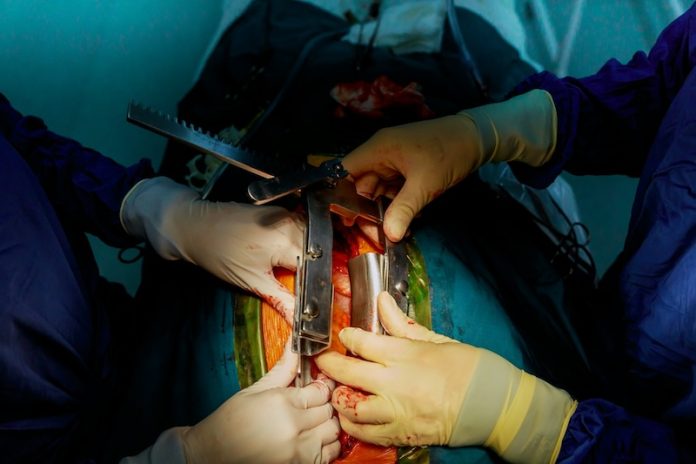
A new 3D printing technology has led to the creation of strong, flexible, gel-like tubes that could greatly improve heart bypass surgeries.
These new tubes might replace the human and synthetic veins currently used to reroute blood flow in these procedures. Experts believe this development could lead to better outcomes for patients.
In heart bypass surgeries, around 20,000 of which are performed every year in England, surgeons often use veins from the patient’s own body or synthetic materials to create new blood pathways.
However, using human veins can cause scarring, pain, and infection. Synthetic veins, especially small ones, sometimes fail to integrate well into the body. The new synthetic vessels created with this advanced 3D printing technique could help overcome these issues.
A research team from the University of Edinburgh’s School of Engineering has developed a unique two-stage process to create these tubes. They first used a 3D printer equipped with a rotating spindle to print tubular grafts from a water-based gel.
Then, they reinforced these tubes using a method called electrospinning. This involves applying a high voltage to produce very thin nanofibers, which coat the tubes with biodegradable polyester molecules.
Tests have shown that these new synthetic tubes are as strong as natural blood vessels. They can be made in various thicknesses, ranging from 1 to 40 millimeters in diameter, making them suitable for different medical applications. Their flexibility means they can easily be integrated into the human body.
The next steps for this research include testing these synthetic blood vessels in animals, in collaboration with the University of Edinburgh’s Roslin Institute, before moving on to human trials.
The study detailing this innovative technology has been published in Advanced Materials Technologies and involved collaboration with Heriot-Watt University.
Dr. Faraz Fazal, one of the researchers, expressed excitement about the new possibilities this technique opens up for creating tubular structures in tissue engineering.
Dr. Norbert Radacsi, the principal investigator at the University of Edinburgh’s School of Engineering, highlighted that their results address a significant challenge in vascular tissue engineering: creating a conduit with biomechanical properties similar to human veins.
With continued support and collaboration, this technology could lead to improved treatment options for patients with cardiovascular disease, bringing the vision of better heart bypass surgeries closer to reality.
If you care about heart health, please read studies about how vitamin D influences cholesterol levels, and what we know about egg intake and heart disease.
For more health information, please see recent studies about best supplements for heart disease prevention, and wild blueberries can benefit your heart and brain.
The research findings can be found in Advanced Materials Technologies.
Copyright © 2024 Knowridge Science Report. All rights reserved.



